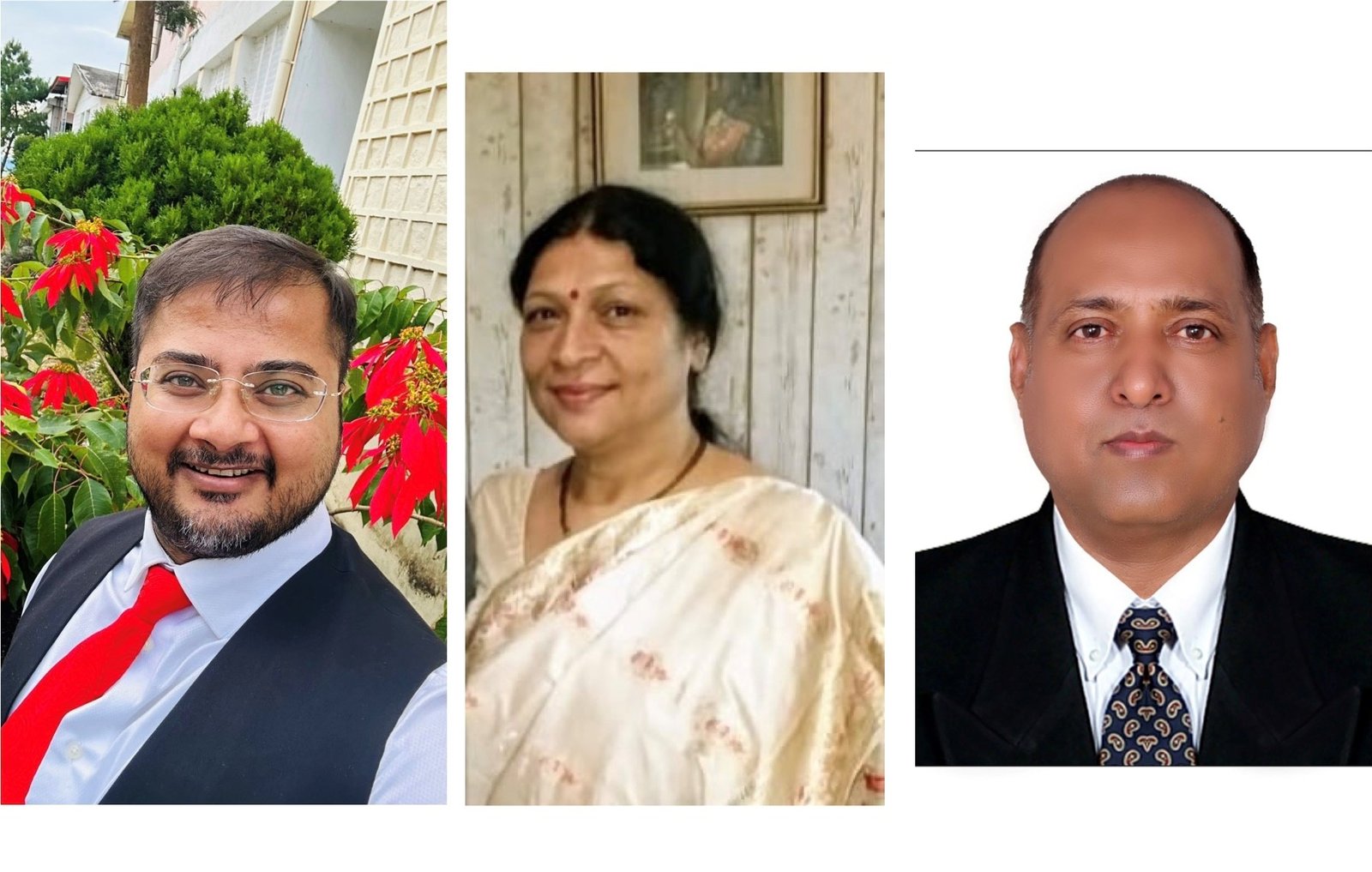Three professors from Nagaland University have been featured in the list of the world’s Top 2% Scientists for 2024, released by Elsevier and Stanford University, USA published on 16th September 2024. The professors include Prof. Ambrish Singh from the Department of Chemistry, Prof. Joginder Singh from the Department of Botany, and Prof. Sujata Dash, Professor and Head of the Dept of Information Technology.
Peter Ki, PRO, Nagaland University informed in a press release that Prof. Ambrish Singh has been included in this list for the past five years while Prof. Joginder Singh has been recognized for the last two years.
On the occasion, Prof. J.K. Patnaik, Vice Chancellor of Nagaland University, stated: “This is a remarkable achievement for Nagaland University, reflecting the perseverance and unwavering dedication of the three faculty members in reaching this significant milestone.”
Prof. Ambrish Singh completed his Ph.D. at VBSPU, Jaunpur. Before joining Nagaland University, he was Professor at the School of Materials Science and Engineering at Southwest Petroleum University in Chengdu, China, from January 1, 2016, to May 14, 2023. His prior roles include Postdoctoral Research Fellow at the same institution from July 2013 to December 2015 and Assistant Professor at Lovely Professional University. He has also served as a Senior Research Fellow and Research Assistant at the Indian Institute of Technology, Banaras Hindu University. He has an H-index of 52, Citations over 9500, Research Papers over 185 in high impact journals. Prof. Singh is Fellow of RSC and ICS and have Sichuan 1000 Talent, Presidents Award, Young Scientist accolades to his name. He served as a consultant to KFUPM, Saudi Arabia and as a Visiting Professor to Al-Farabi University, Kazakhstan.
Prof. Joginder Singh earned his M.Sc. in Botany in 2000, specializing in Plant-Microbe Interaction, and completed his Ph.D. in 2003 on arbuscular mycorrhizal relationships of halophytes in Western Rajasthan. With over 20 years of research experience, he has received a total of 20.18 million rupees in grants, published more than 200 research articles, edited 32 books, and authored or co-authored 150 chapters. He has also served as a Research Associate at CSIR, a Young Scientist in a Department of Science and Technology project, and has actively participated in numerous national and international conferences.
Prof. Sujata Dash completed her Ph.D. at Berhampur University and a Postdoctoral fellowship at the University of Manitoba, Canada. She holds an Advanced Diploma in Bioinformatics from the University of Alabama, Huntsville, USA, and an MTech in Computer Science and Engineering. She was honoured with the prestigious Titular Fellowship from the Association of Commonwealth Universities, United Kingdom in 2017. Her work experience includes serving as a Visiting Professor at the University of Manitoba, Professor at Maharaja Srirama Chandra Bhanj Deo University, Professor and Dean of Research at Gandhi Institute for Engineering and Technology, Professor and Head at Orissa Engineering College and Associate Professor at KIIT in Bhubaneswar. She has authored over 200 technical papers published in international journals and conference proceedings and edited book chapters by reputed publishers such as Springer, Elsevier, IEEE, IGI Global USA, and Wiley. Dr. Dash has got twelve patents, two copyrights, a few textbooks, and 25 edited books to her credit.
The PRO, NU further informed that the Top 2% Scientists list, published by Elsevier and Stanford University, evaluates the impact and relevance of scientists’ work using various metrics. Key criteria include total citations, which reflect the overall number of citations received by a scientist’s publications; the H-index, a metric that quantifies both productivity and citation impact; and co-author impact, which considers the influence of collaborators on citation metrics.
Additionally, the Field-Weighted Citation Impact adjusts citations based on the average citation rate within specific fields to account for variations in citation practices. Scientists are categorized based on their overall career contributions as well as their recent achievements, and in some cases, performance metrics are compared against the top scientists within specific fields through top 10% thresholds. This comprehensive evaluation serves to identify leading researchers across disciplines.


